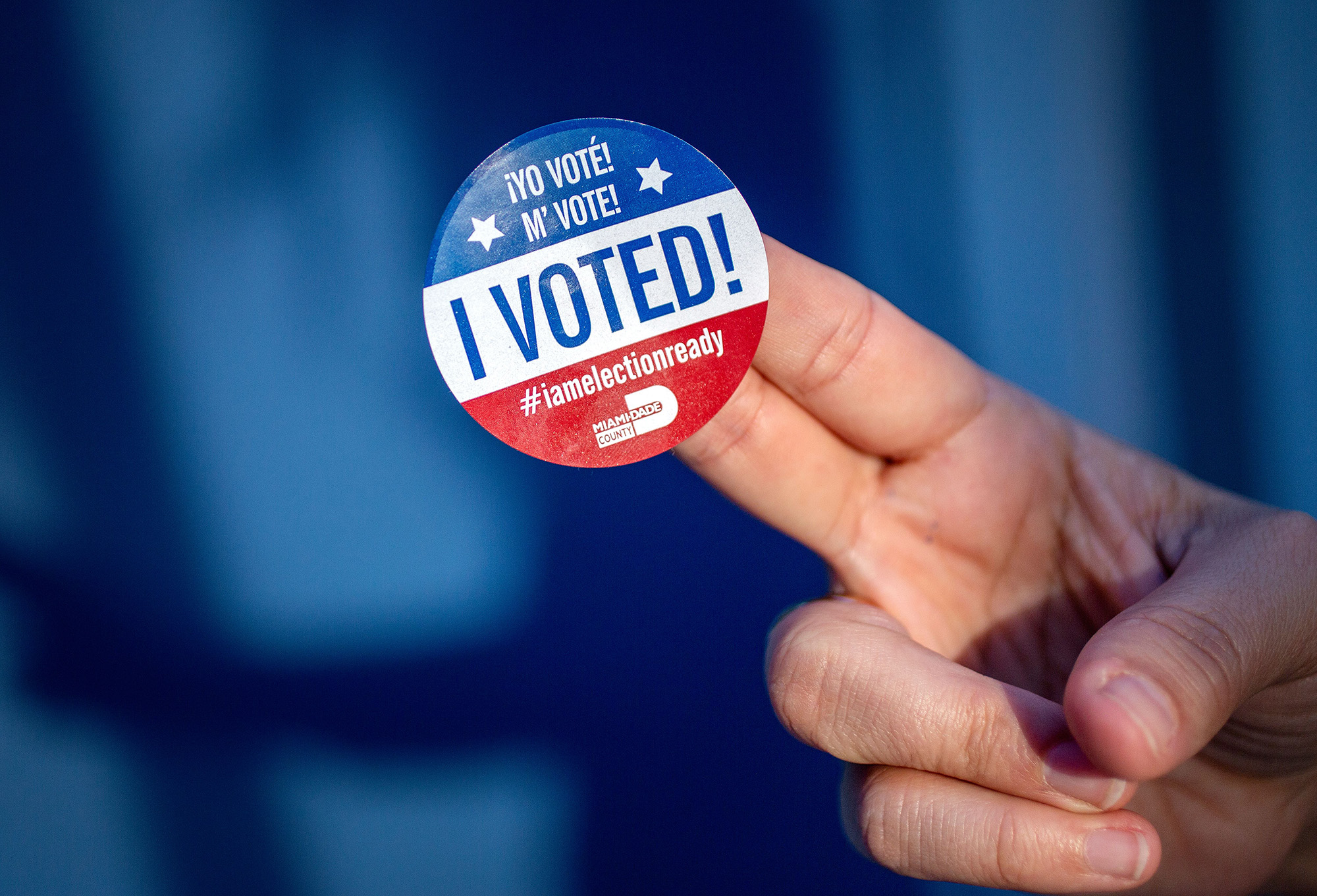Democracy, stability on the ballot in 2022 midterms: ANALYSIS
ABC News found respect for results and faith in the system sorely lacking.
It's become trite in politics to talk about the next elections being the most important of our lifetimes.
But a career covering politics has not and probably could not prepare one for the stakes of the 2022 midterms. The races that culminate -- though that almost certainly will not conclude -- on Election Day Tuesday have become about far more than control of Congress or state houses and the policies such control will mean.
You can take it from the most recent Democratic president: "Democracy as we know it may not survive," Barack Obama said last week, outlining the consequences as he sees them of election-denying Republicans sweeping Arizona.

Or take it from the most recent Republican president: "This country, I don't know if it's gonna live for another two years," Donald Trump said over the weekend in Pennsylvania, describing what he casts as the consequences of Democrats winning the Senate and enacting a liberal agenda.
There's nothing new about candidates framing races as choices between stability and disorder, lightness and the scary dark, or just plain good vs. evil. There's also no equating the relative honesty of the last two presidents and the political philosophies they continue to represent; Trump, it bears noting, continues to lie about his own defeat in 2020.
But the near-apocalyptic scenarios laid out by, yes, both sides makes it hard to imagine a serene aftermath of a divided election, particularly if outcomes are a little bit messy, as is typical. Then again, the election cycle effectively began with unprecedented turmoil, and things have hardly gotten tame from there.
For more from ABC News' team of reporters embedded in battleground states, watch "Power Trip: Those Seeking Power and Those Who Chase Them" on Hulu, with new episodes on Sunday.

Power Trip
"Power Trip" follows 7 young reporters as they chase down candidates in the lead up to the midterms with George Stephanopoulos guiding them along the way.
On Jan. 5, 2021, Georgia's runoffs closed out the 2020 cycle by handing control of the Senate to Democrats. The very next day brought the riot at the Capitol aimed at overturning the 2020 election results, spurred on by the first instance in American history of a defeated president refusing to accept a defeat confirmed by audits, recounts and judicial rulings.
What's happened in the tumultuous months since then has been no less searing. An uncertain pandemic recovery, double-digit inflation, the Supreme Court ruling ending a constitutional right to abortion, crises driven by migrant surges at the border, worries about classroom progress and crime, a war started by a nuclear power and threats coming from others -- it makes for the kind of uncertainty and bafflement that help build wave elections.

Meanwhile, the first-ever impeachment trial for an ex-president and head-spinning revelations from the Jan. 6 committee did nothing discernible to end election denialism. Barely a week before the election, a vicious break-in attack on the husband of the speaker of the House of Representatives -- intended, apparently at kidnapping the speaker herself -- prompted no serious reconsideration of the consequences of lies about election results.
Now, there's a very real if not inevitable scenario that will leave people who say they would not have certified the last election in charge of running the next one -- including in pivotal and perennial battleground states.
Along with other national and local news organizations whose important work continues, ABC News reporters experienced what this all has meant on the front lines. Our news organization sent young reporters across the country to live in battleground states and report on what candidates and voters are saying in all manner of settings -- from campaign rallies and college-football tailgates to grocery lines and restaurants.
What they found reflected America in all its diversity and contradictions. ABC reporters talked to moms worried about democracy but also grocery bills, young people fired up about reproductive choice and student loans but uncertain about whether President Joe Biden is fit for the job, politically active and also disengaged Americans frustrated by sweeping pronouncements as well as new pronouns.

Our reporters also encountered resistance and even threats as they did their jobs -- or at least tried to.
As documented on the Hulu series "Power Trip," an ABC News "embedded" reporter trailed the GOP candidate for governor in Pennsylvania for days in futile hopes of getting questions to him, and another was physically blocked at one point from asking questions of the Republican Senate candidate in Georgia. A different reporter was barred from attending campaign events featuring the governor of Florida after having asked about his taxpayer-sponsored flights sending migrants to Massachusetts at one such event.
Republican campaign staffers in both Georgia and Florida interrupted ongoing interviews ABC News was conducting with voters in public areas outside their own campaign events. In Nevada, a candidate for county commissioner with a handgun on his belt told a reporter from ABC was not invited to a stop on a candidate's bus tour because it was a "conservative" event.
In Arizona, the GOP gubernatorial candidate flipped that script. She invited extensive access and making herself available for extended interviews, though with her own team also filming and later sometimes posting their own edited versions of interactions with the press.
The Democratic candidate in that race declined to debate her Republican opponent, citing her refusal to recognize election results. In other states -- including Pennsylvania, Wisconsin and Florida -- ABC was not able to get commitments from Democrats for Senate debates involving local partners, though candidates in those races did participate in a limited number of other debates.
Reporters' ability to do their jobs and ask questions is likely far down the list of any voters' concern. But isolated episodes like those above were both symptoms of a dire political climate and, perhaps, the cause of even more dysfunction and discord.

An election is the ultimate manifestation of democracy. Voters, of course, are free to choose the issues they cast votes on – that's the point of the process that's now playing out, with all its uncertainties and oddities.
But the process ultimately depends on respect for results and faith in the system of both governance and elections to serve its essential functions. ABC's reporting this election cycle has found that to be sorely lacking, whether voters realize it fundamentally or not.
The scariest thing to ponder is that what's been said about this election -- that democracy is at stake, that the future of the republic is on the line -- might actually be right.




